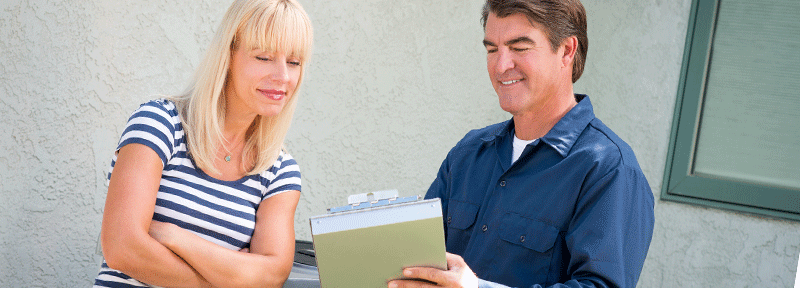
Your HVAC system unfortunately will not last forever and will eventually need to be replaced. Sometimes a simple repair is all that is needed, but there will come a day when the system either dies altogether or it simply isn’t worth it to keep draining money into constant repairs.
Ideally, you will be able to replace your system before it entirely quits so that you can take charge of the best time of year to make a replacement. How can you tell when you need to start thinking about upgrading your HVAC system?
Signs Your System Needs to Be Replaced
The system is older than 10 years
The Department of Energy recommends replacing your HVAC system every 10-15 years to maximize energy efficiency. Some newer units may last up to 15 years, so be sure to check when yours was installed and ask a professional how long it should last.
Constant Repairs
Does it seem like you have a stream of never-ending repairs? If you are constantly getting repairs done that are adding up in cost, it may be time to stop wasting money on a failing system and replace it.
Heating and Cooling Problems
Are some rooms in your house too hot or too cold? This lack of balance may indicate that your equipment is ready for an upgrade. Make sure that you do not have an insulation or duct problem as these are common causes for improper heating/cooling.
Poor Air Quality
If you start to notice excessive dust around the house, high humidity, or mold odors, first check your filters to make sure they aren’t clogged. If this does not solve the issue, you may want to replace your unit for better indoor air quality.
AC Uses R-22 Refrigerant
As of January 1, 2020, production of R-22 refrigerant has been phased out. If your unit runs out of R-22, an HVAC technician can service it using recycled or recovered R-22. However, if you need to replace your unit, you’ll need to install a new system that uses a more sustainable refrigerant, such as R-454B or R-32 (R-410A units are also still available through 2025).
What Time of Year Should I Replace My System?
If possible, it’s always best to try and schedule your HVAC replacement ahead of time so that you are not caught off-guard with a broken-down system. Scrambling to replace a failed system in the middle of winter or summer is not an ideal situation.
Typically, the off-season is the best time to make replacements. This usually includes the fall and spring months before extreme hot or cold temperatures hit. Contractors are almost always the busiest during summer and winter, so there may be a delay in getting service during those two seasons. Those are also the most expensive months for system replacements since that is when the industry is booming. During mild weather when business slows down, contractors are often more readily available and are usually more willing to lower prices and offer discounts.
Getting your HVAC replaced in the fall or spring is also generally more inconvenient for house occupants due to the mild temperatures. A replacement in the sweltering summer means that you will have to go without cool air for a period, which may turn into weeks due to the busy industry season. An off-season upgrade will likely have a faster turnaround without the discomfort of hot or freezing weather.
Read Next: Winter is Coming – 5 Simple Steps to Prepare Your Furnace



